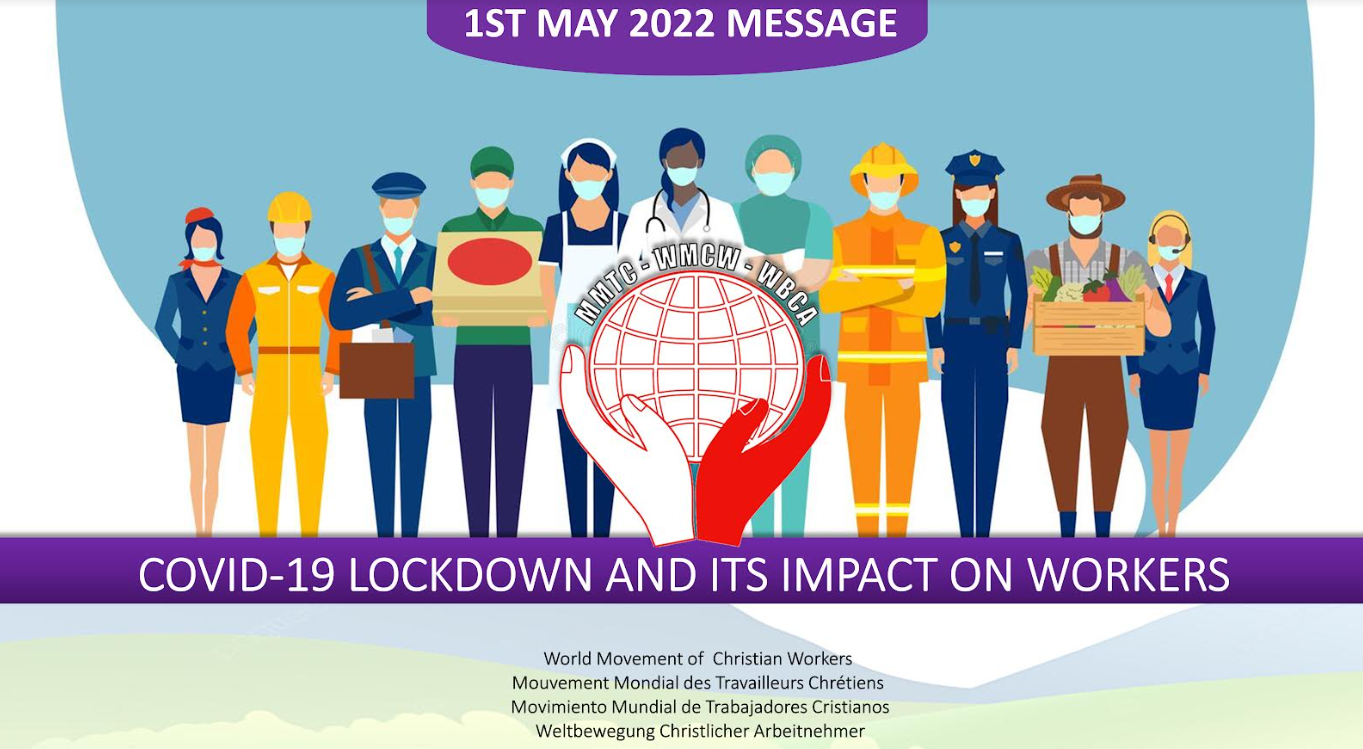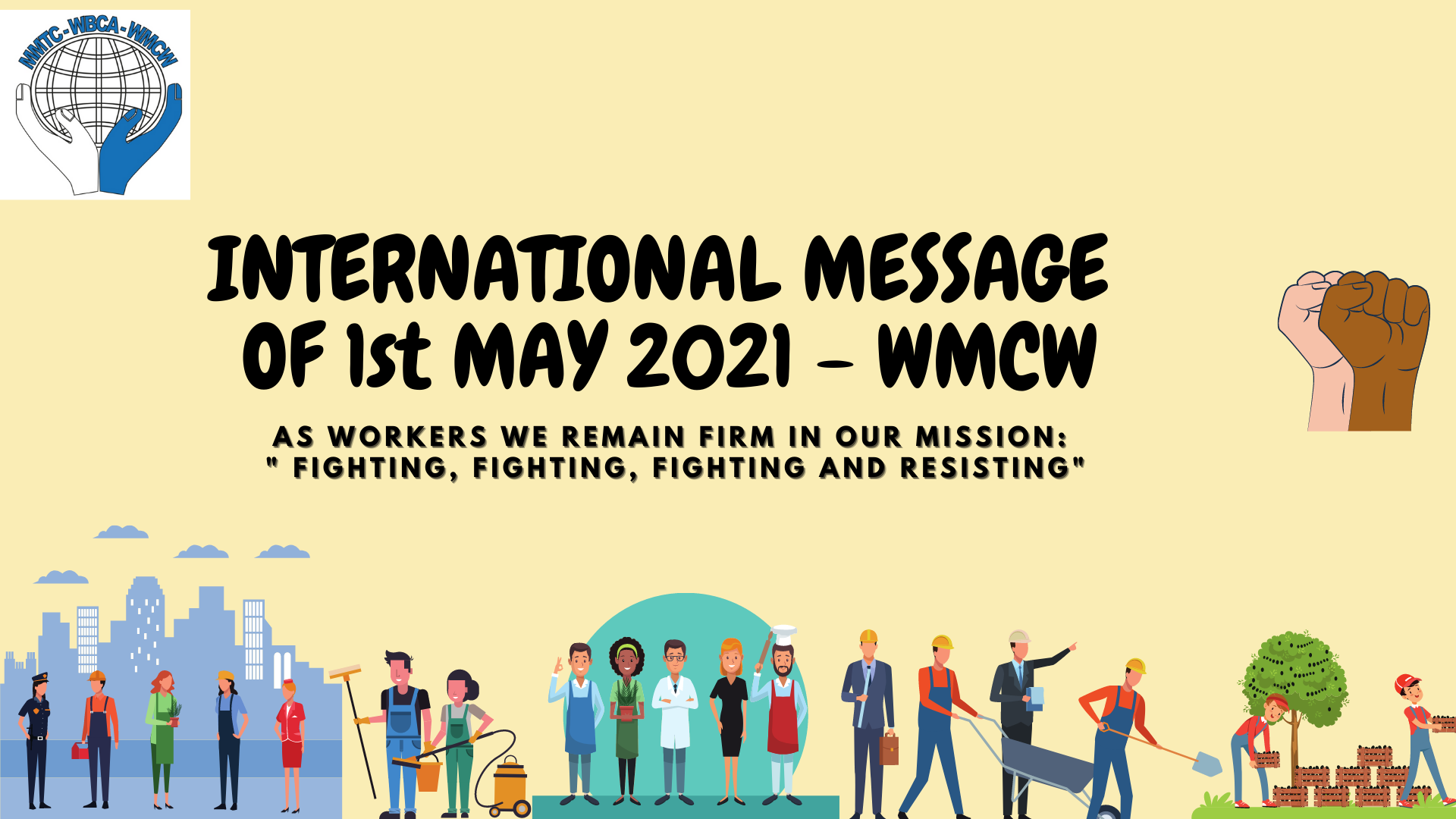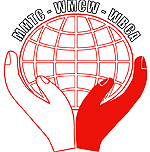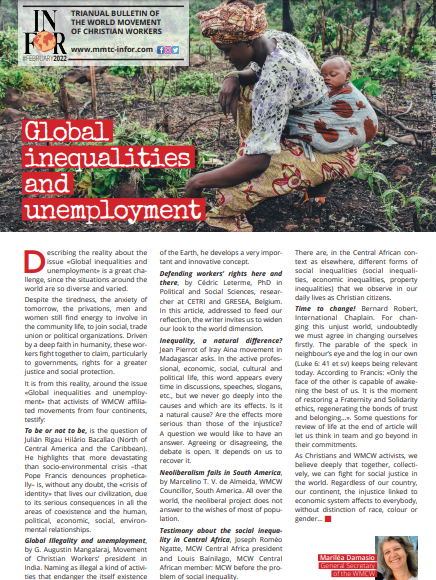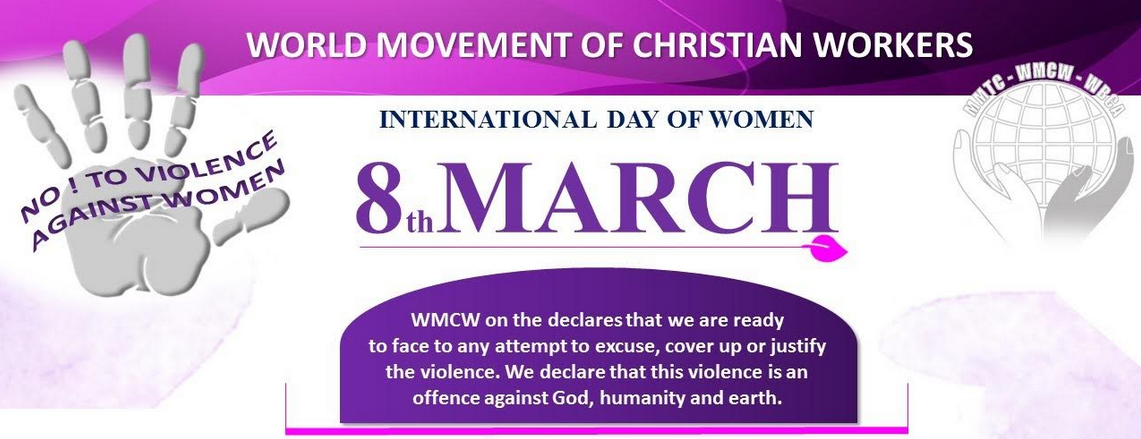
The violence against women and girls occurs all over the world. While some countries condemn it strongly, a great part of world population still considers it as “normal”. However, this violence, not only undermines women’s integrity, reduces their access to the essential services and resources.
We are grateful for many men and women who continue, courageously, to advocate for the elimination of violence against women and girls. All supporting initiative is commendable and its effects will be felt, through Christ, in all the areas of Church life.
WMCW on the occasion of 8th March (International Day of Women) declares that we are ready to face to any attempt to excuse, cover up or justify the violence. We declare that this violence is an offence against God, humanity and earth.





